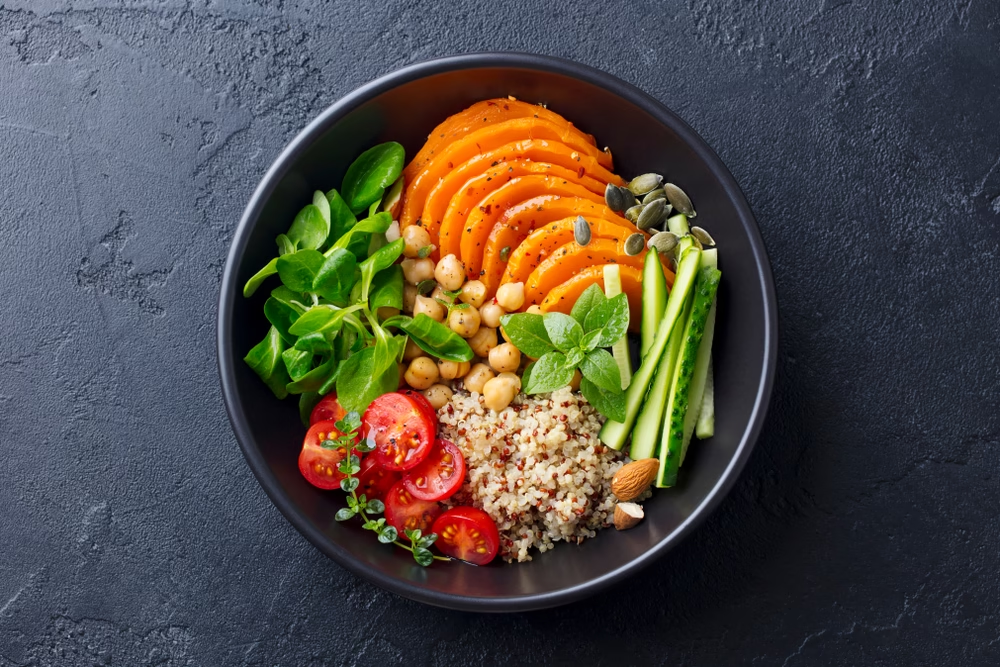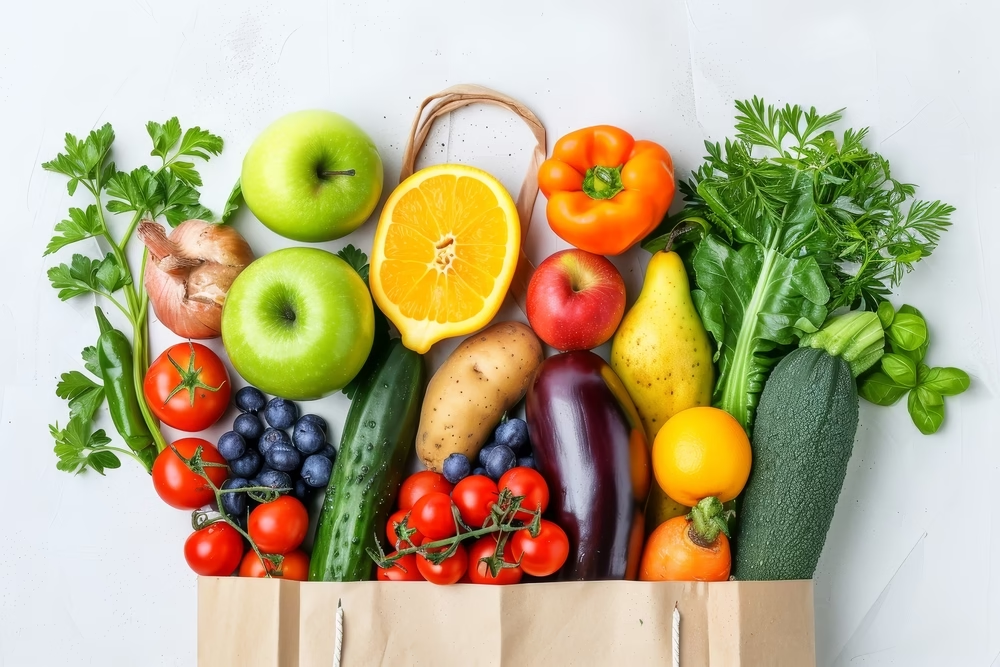“You don’t look like a heart patient.”
That’s what they said to Gaurav, a 33-year-old software engineer from Noida. Fit, vegetarian, gym-going. Until he passed out in his gym. 80% heart blockage. Shocked? So were we. But here’s what the data shows: 1 in every 4 Indians dies of heart disease. Trans fats and processed food in India account for more deaths annually than malaria, TB, and HIV combined. At SAAOL Heartcare Delhi, an establishment headed by Dr. Bimal Chhajer, we deal with this every day. People rushed to surgery without knowing what really caused the heart blockage. The truth is it’s all about what’s on your plate. That’s why we provide something more than non-invasive heart treatment, and more than just EECP therapy in Delhi/NCR. We give you the most suitable diet consultation tailored for you and all the correct information that busts the myths and gimmicks related to your food. Consider this blog your survival guide. Your defense plan. And a no-nonsense list of the 10 foods that help you avoid heart blockage, many of which are still so underrated!
Let’s break it all down.
Table of Contents
ToggleWhat Is Heart Blockage?
Heart blockage happens when you have arteries clogged in your body by plaque (sometimes called a sticky mess of cholesterol, fat, calcium, and inflammation).
Try drinking through a straw full of sand. Difficult, right? That’s what your heart contends with, quietly, for decades.
The only good news here is that it doesn’t take fancy pills. It requires more smart and good decisions, on cutting out the foods that cause plaque in the first place.
Certain Foods Increase the Risk of Heart Blockage
Heart blockages are not all about the numbers related to cholesterol. It is about inflammation and oxidative stress, and toxins in processed foods and a lifetime of tiny choices that pile up unchecked. And no, it’s not just about the samosa or the burger; sometimes it is the packaged “healthy-labeled” food that is poisoning you in secret. It often comes in attractive packaging just to keep you looking from beyond, like added sugars, high sodium, and hydrogenated oils. BUT, some foods don’t just prevent heart blockage, they reverse some of the damage. SAAOL Heartcare Delhi’s lifestyle approach under Dr. Bimal Chhajer is based on this exact science, using a zero-oil, non-invasive, plant-forward dietary approach to heal the heart and avoid bypass surgery altogether.
Top 10 Foods That Prevent Heart Blockage
Green Leafy Vegetables (Palak, Methi, Bathua, mustard leaves)
Leafy greens are naturally high in nitrates, which are converted in the body to nitric oxide, a compound that dilates blood vessels, reduces blood pressure, and aids in recovering better overall circulation. They’re also full of antioxidants, magnesium, folate, and vitamin K, which aid in decreasing arterial stiffness.
SAAOL heartcare tip: Have them steamed, sautéed in water, or added to dals — but never with oil or butter.
Whole Grains and Millet (Jowar, Bajra, Ragi, Brown Rice, Oats)
Soluble fiber, found in whole grains and millet, binds to cholesterol in your digestive tract and removes it from your body. They keep blood sugar levels in check, reduce triglycerides, and prevent insulin spikes, which is a big contributor to endothelial (artery wall) damage.
A Harvard study showed that people who consumed more than two servings of whole grains daily had a 21% lower risk of cardiovascular disease.
Amla (Indian Gooseberry)
Amla is rich in vitamin C, polyphenols, and antioxidants like ellagic acid that help in diminishing oxidized LDL, which is the most dangerous bad cholesterol. Regular intake of amla has been shown to reverse plaque already present in the blood vessels, help blood vessels relax or dilate, and lower markers like CRP, which are indicative of inflammation.
SAAOL heartcare often includes fresh or dried amla in its heart disease reversal diet plans.
Tomatoes (Raw or Cooked)
Tomatoes are overflowing with lycopene, which is a powerful antioxidant that works by preventing damage to artery walls and by reducing LDL oxidation, a contributing factor to plaque accumulation. To satisfy all lycopene concerns, though, use cooked tomatoes; cooked tomatoes have even more lycopene, so go ahead and enjoy a bowl of tomato curry without oil.
Pomegranate
This fruit has punicalagins, which are known to help reduce plaque thickness, lower your blood pressure, and increase nitric oxide levels in the body. A clinical trial found that drinking pomegranate juice for 3 months resulted in a substantial increase in blood flow to the heart. Add it to salads, eat it plain, but just don’t mix it with sugar.
Turmeric (Haldi)
Raw turmeric offers curcumin, an anti-inflammatory, antioxidant compound that protects the lining of the arteries (endothelium) and promotes more stable plaque that can be absorbed without rupturing to cause a heart attack. Also supports liver detox, allowing the body to naturally clean cholesterol and toxins. Stir it into hot water, soups, or other food
Moong Dal, Rajma, Chana, and Other Legumes
Legumes are full of plant-based protein, complex carbohydrates, and soluble fiber that can lower cholesterol, stabilize blood sugar, and promote a healthy gut. A meta-analysis of 26 studies showed that legume intake significantly lowers LDL cholesterol and improves a number of cardiovascular risk factors collectively.
SAAOL heartcare recommends dals and legumes as primary protein sources, cooked without oil.
Garlic (Raw or Aged)
It contains allicin, which is a natural blood thinner and anti-inflammatory, and is known to have cholesterol-lowering effects. It’s also great at relaxing arteries and lowering blood pressure. Consume 1-2 raw cloves of garlic in the morning (under medical supervision) or choose an aged garlic extract.
Lauki, Tinda, and Other Water-Rich Veggies
These veggies are excellent for hydration, BP control, and reducing sodium retention. High in potassium and low in calories, they are excellent for those with existing heart conditions. They also support kidney and liver detox, which indirectly benefits heart function. Have them in soups, boiled, or in dry sabzis without oil.
Methi Seeds (Fenugreek)
Fenugreek contains saponins and fiber that help reduce cholesterol absorption, regulate blood sugar, and improve lipid profiles. It’s especially useful in diabetic patients with early heart risk. Soak 1 teaspoon of methi seeds overnight, and consume on an empty stomach.
The SAAOL Plate: A Practical Visual

Imagine a typical SAAOL meal:
- 50% vegetables/salad (steamed/spiced without oil)
- 25% whole grains/millets (jowar roti/any millet roti)
- 25% plant protein (dal/legumes)
- + amla, turmeric, garlic, and pomegranate added throughout the day
This combination does what stents can’t: it heals.
What Dr. Bimal Chhajer Recommends for a Healthy Heart?
Dr. Bimal Chhajer, founder of SAAOL, has demonstrated for more than 30 years what pure-Zero-Oil cooking is and how EECP is a therapy far superior to any medicinal or surgical treatment. Miracles do happen at SAAOL Heartcare Delhi. Patients with 90% blockages who have angina and low ejection fractions do not go in for bypass surgery and go on to lead pain-free lives, without a drop of oil in their diet!
How to Start Zero-Oil Cooking at Home
- Steam, roast, bake, or air fry — with no oil.
- Opt for natural thickeners such as tomato puree, besan
- Use spices, herbs, tamarind, lemon, ginger, and garlic for seasoning and flavour
- And cook in non-stick or ceramic pans, using a spray bottle with water instead of oils.
No deep-frying. No tempering in oil.
What More Can You Do to Prevent Heart Blockage Naturally?
- 30 minutes of daily brisk walking
- Sleep a minimum of 7 hours
- Meditation or pranayama for stress
- Regularly Monitor Lp(a), Homocysteine, and HS-CRP levels (Optional)
- Annual cardiac screening if you are older than 30 or have a family history
Conclusion: Eat to HEAL
Food is not entertainment. It’s medicine — or poison — depending on which you pick.
You’ve been told that heart blockage is inevitable. That your family history has doomed you. That surgery is the only way. We are here to say: That is not true.
At SAAOL Heartcare Delhi, with non-surgical heart disease treatment, EECP treatment, and the Zero-Oil approach by Dr. Bimal Chhajer, you can live proof that it’s never too late to change. Book your consultation now.
FAQs
- What are the foods that cause heart blockage in India?
Industrialised oils, Sugar, Processed meat, Bakery products, Snacks, French fries, Salty foods.
- Is there a way to reverse heart blockage without surgery?
Yes, at SAAOL Heartcare Delhi by EECP with Zero-Oil Diet and lifestyle modifications
- What diet should be followed to avoid heart blockage?
A zero-oil, plant-based, low-sodium, low-sugar diet composed primarily of whole grains, millet, vegetables, and legumes.
- Is one spoonful of oil fine for heart patients?
No. Even a single spoonful is 120 empty calories, and it’ll leave arteries inflamed.
- How long do you have to be treated with EECP?
Approximately 40 sessions for a few weeks. It’s a non-invasive and naturally enhances circulation.
- Can egg yolk and paneer cause heart problems?
Yes. They are high in saturated fats and cholesterol, which add to plaque in the body.


